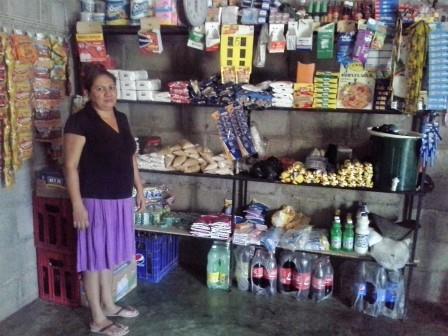
Women Now Earning 5x More; Planting Trees Saves Watershed
There is much to celebrate as the program completes a second three-year phase for farmers and single mothers, including a significant increase in monthly income.
By starting small in-home grocery stores, single mothers are now earning five times more, with an average monthly income of 5,000 Lempiras (about $250). They can now provide for their children and are seen as role models in their community, giving hope to other women.
On the agricultural side of the program, environmentally destructive slash-and-burn agriculture is on the decline. Approximately 80% of farmers have stopped burning their fields, and more join them every year. These farmers have seen first hand how conservation agriculture improves their yields and how the loss of forests impacts the weather and their water supply.
Farmers are also diversifying their crops and diets beyond corn, to include fruits and more vegetables such as squash and yuca (a tuber). Some are growing cashews, sesame and passion fruit as cash crops. Diversification was an important factor in communities’ food security when insects destroyed the sorghum crop. Many community groups are saving a portion of their corn and other grains in seed banks to protect against future losses.
What’s more, a healthy forest now stands around a local watershed thanks to a community’s hard work and dedication in planting 13,000 trees. The river in this watershed is the only one that did not dry up during a recent drought.
Photo caption: Doña Ilce’s store fills a community need and improves her income
Honduras Orocuina and Liure Program is Led by Mennonite Central Committee and Local Partner CODESO
8 Communities, 255 Households, 1,740 Individuals
